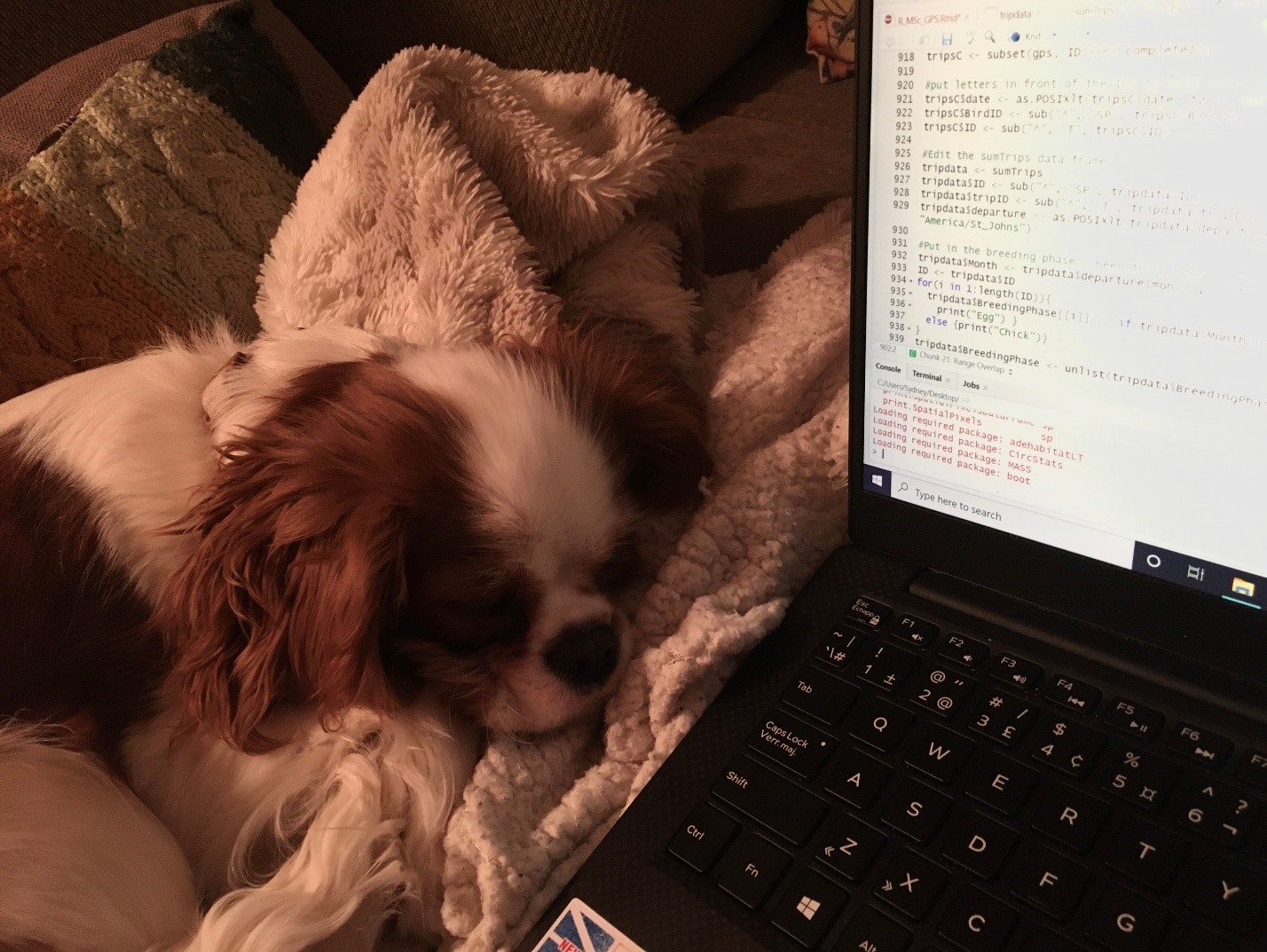
(My puppy is helping me with my R code. He definitely makes the process less arduous).
Frenemy: “A person who is or pretends to be a friend but who is also in some ways an enemy or rival.” (Merriam-Webster.com)
When I was in high school, many of my friends were talented computer programmers. They went on to create their own website design companies, study computer science in Canada’s most prestigious programs, and work for highly regarded companies like IBM and Intel. I am very proud of all of them, but I never ‘got’ computers. Some of my high school buddies even joked that I was cursed, because very odd and rare problems would often happen with my computer and other technologies. The worst one was when my undergrad thesis paper disappeared from the cloud storage on my laptop (don’t worry, I got it back in the end). With all my computer struggles and the impossibly high standards that I set for myself when comparing to my high school friends, I never thought that I could be good at coding. You can then imagine my chagrin when I was first introduced to R.
The first day I tried to use R, I spent three hours simply trying to upload my data into the program. I quit and switched to SPSS after that day, but R was waiting. When I submitted my undergrad thesis for publication, one of my reviewers suggested I try a different type of statistical model. This model was complex enough that it could not be done in SPSS, and so again R presented itself as my option. Earlier that year, I had taken part in a phenomenal field course in Churchill, Manitoba. As a part of this course, our professor provided an introduction to R. R had come up in a few of my other courses, but what set this time apart was that she taught me how to learn and how to code in R. We learned the basics, but we also learned where to look for help and how to read those help files. Most importantly, she taught us to use R with data that we collected for the field course. This was a game changer for me. It was the first time that I was working with a dataset that I really understood. With your own data, you know exactly how it was collected and what it was for. This intimate knowledge helped me to really understand what I wanted to accomplish, and therefore how to apply my situation to the R help websites and pages.
Another important realization that helped me is that R is not the place to learn statistics. I threw myself into learning stats so that I understood what I wanted to do before I needed to code it. This allowed me to better understand the help files that come with packages and to better understand the output of my code. My courses in undergrad and graduate studies really helped me to learn stats, as did textbooks, Google, and my wonderful supervisory committee.
For me, R is the ultimate frenemy. I have been working with R for about 3 years now, and I have come a long way. I’m not scared of coding anymore, and *sometimes* I even find it kind of fun. It can be incredibly frustrating when the code doesn’t work, and R can seem like the enemy. When it does work, and you make that beautiful figure that will be featured in your thesis, or you get a result from a statistical test that will drive your discussion, it is extremely rewarding. I am definitely not an expert coder or statistician, but I can now use these tools and continue to improve my skills. If you want to improve your skills in R, there are many resources on campus that can help (check out RBar https://daniellequinn.github.io/RBarMUN/). Ultimately, the best way to bring R from enemy to frenemy is through hard work.
~Sydney